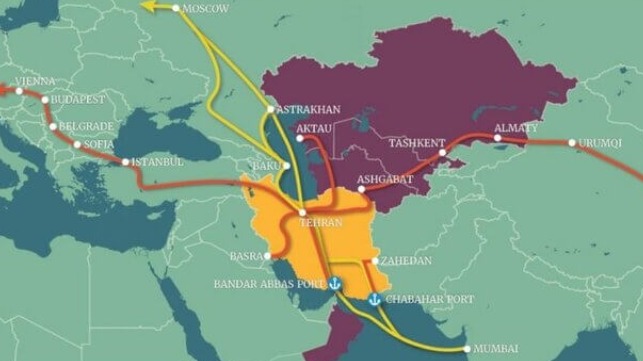Iran Sets Up Caspian-to-Gulf Intermodal Route for Russian Cargo

Iran is finding new common cause with Russia: subverting the Western world's sanctions on both countries. The rising isolation of the Russian economy has drawn new interest to a long-hoped-for Iranian trade lane: a "North-South Transport Corridor" connecting Russia with the Persian Gulf. The complex route would involve no less than three modal changes in each direction.
Iran's economy has been under U.S. sanctions for years, resulting in severe isolation for its shipping and ports sectors. However, it still actively trades with a handful of countries, including Venezuela, India and China. The proposed International North-South Transport Corridor would carry Russian goods by rail to Astrakhan; across the Caspian Sea by freighter to Bandar Anzali; overland across Iran by truck to Bandar Abbas; and onward to India by water, all arranged by the Islamic Republic of Iran Shipping Lines (IRISL), an organization sanctioned by the United States.
The test shipment is small - two containers of Russian plywood, bound from St. Petersburg to Nhava Sheva. The overall voyage time will be about 25 days, according to Dariush Jamali, head of the port of Solyanka, Astrakhan. State-affiliated Mehr News reported that the shipment is the first test-run for a coming "foreign transit boom" in Russian and Belarusian cargo crossing through Iran.

that matters most
Get the latest maritime news delivered to your inbox daily.
The arrangement is one of several signs of Iran's desire for closer ties with the Russian economy. On Sunday, Iranian Deputy Foreign Minister Mehdi Safari said that it is possible that Tehran may remove visa requirements for visiting Russian businessmen in order to encourage Russian investment. On Friday, Iran's customs administrator Alireza Moghadasi met with his Russian counterpart to sign an MOU on a new customs agreement for "green customs crossings" for Russian goods.
"Since Iran has been put under tough sanctions by the United States and the West, the two countries can cooperate with each other in order to overcome sanctions," Moghadasi told Iranian state media.
